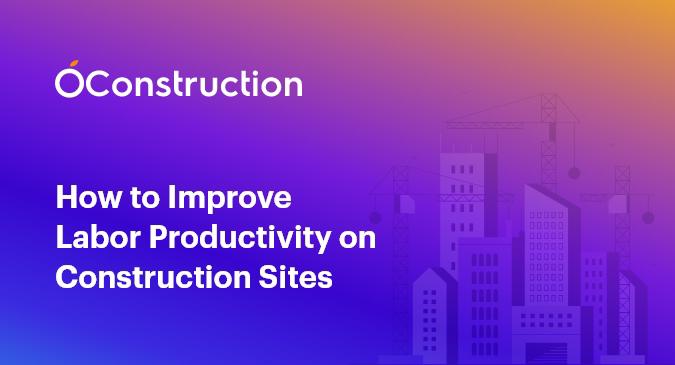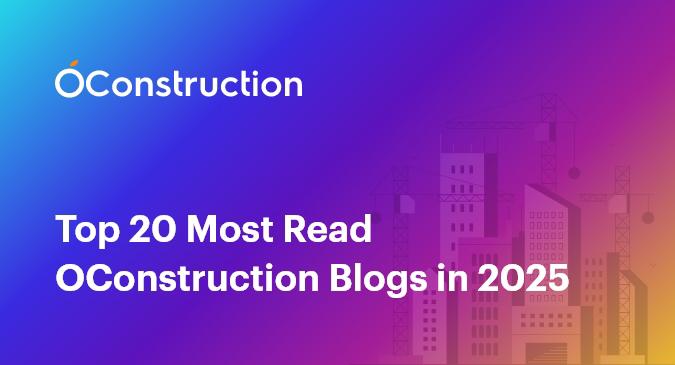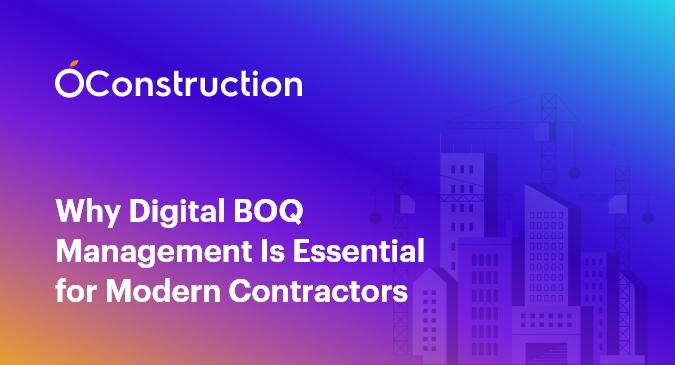In 2025, the demand for advanced construction project management software is higher than ever. With tighter deadlines, budget pressures, and increased stakeholder expectations, contractors can no longer rely solely on spreadsheets and disconnected tools.
Before diving into the top 15, let’s explore one platform leading this shift: OConstruction.
What Is OConstruction?
OConstruction is a modern, cloud-based construction project management platform built specifically for contractors, project managers, and field teams. It centralizes core functions like scheduling, budgeting, team collaboration, safety tracking, and document control into a single dashboard—accessible anytime, anywhere.
Key Features:
- Real-time project updates and Gantt chart scheduling
- RFIs, submittals, and drawing version control
- Mobile app for on-site reporting and progress tracking
- Seamless vendor and team collaboration
- Automated report generation and deadline notifications
Whether you’re managing commercial high-rises or residential remodels, OConstruction ensures transparency, control, and efficiency across all phases of the project.
Why Use OConstruction?
Growing construction businesses seeking a scalable, all-in-one solution
Key Features:
- Centralized dashboard for project planning, team coordination, and progress tracking
- Integrated budgeting, task management, and document sharing
- Real-time communication tools for on-site and office teams
- User-friendly interface with mobile accessibility
Top 15 Construction Project Management Software in 2025
Below is a curated list of 15 high-impact tools that were selected based on industry relevance, features, user feedback, and market adaptability.
1. OConstruction

(Source: oconstruction.io)
OConstruction is a modern, cloud-based construction management solution developed to simplify the daily work of contractors, site engineers, and construction project managers. Designed with industry complexities in mind, it helps teams manage contracts, vendors, safety protocols, and deadlines from a unified dashboard.
Key Features of OConstruction
- Vendor and Subcontractor Management: Enables seamless contract tracking, performance evaluation, and deadline management. Real-time data ensures vendors stay aligned and compliant.
- Site Inspections and Safety Audits: Mobile checklists and photo uploads streamline safety checks, while the system alerts teams of any non-compliance or inspection issues.
- Contract Lifecycle Management: Centralizes contract terms, due dates, and change orders to prevent scope creep or delays
- Real-time Reporting and Dashboards: Offers clear, up-to-date visualizations of project status, costs, and team progress.
Pros of OConstruction
- Intuitive UI for both field and office teams
- Comprehensive tracking for cost, safety, and vendors
- Cloud-based accessibility across job sites
- Excellent customer support and documentation
- Flexible pricing for SMBs and enterprises
Cons:
- Limited third-party integration ecosystem
- Requires onboarding time for full feature adoption
Pricing:
Available in scalable tiers; includes a free trial. View pricing
2. Jonas Construction Software

( Source: jonasconstruction.com)
Jonas Construction is a comprehensive ERP for construction professionals that combines project management, accounting, and service management into one platform.
Key Features:
- Advanced job costing and GL accounting
- Work order and subcontractor tracking
- Document management
Pros:
- Designed for mechanical and service contractors
- High-end financial integrations
Cons:
- Dated user interface
- Learning curve for new users
Pricing: Visit their pricing page to get a custom quote.
3. Wrike

(Source: wrike.com)
A versatile work management platform is increasingly used in construction for resource planning and project coordination.
Key Features:
- Custom workflows and forms
- Gantt and Kanban views
- Budget forecasting and analytics
Pros:
- Highly customizable
- Great for cross-functional teams
Cons:
- Requires manual construction setup
- It can be overwhelming for first-time users
Pricing: Starts at $9.80/user/month
4. LetsBuild
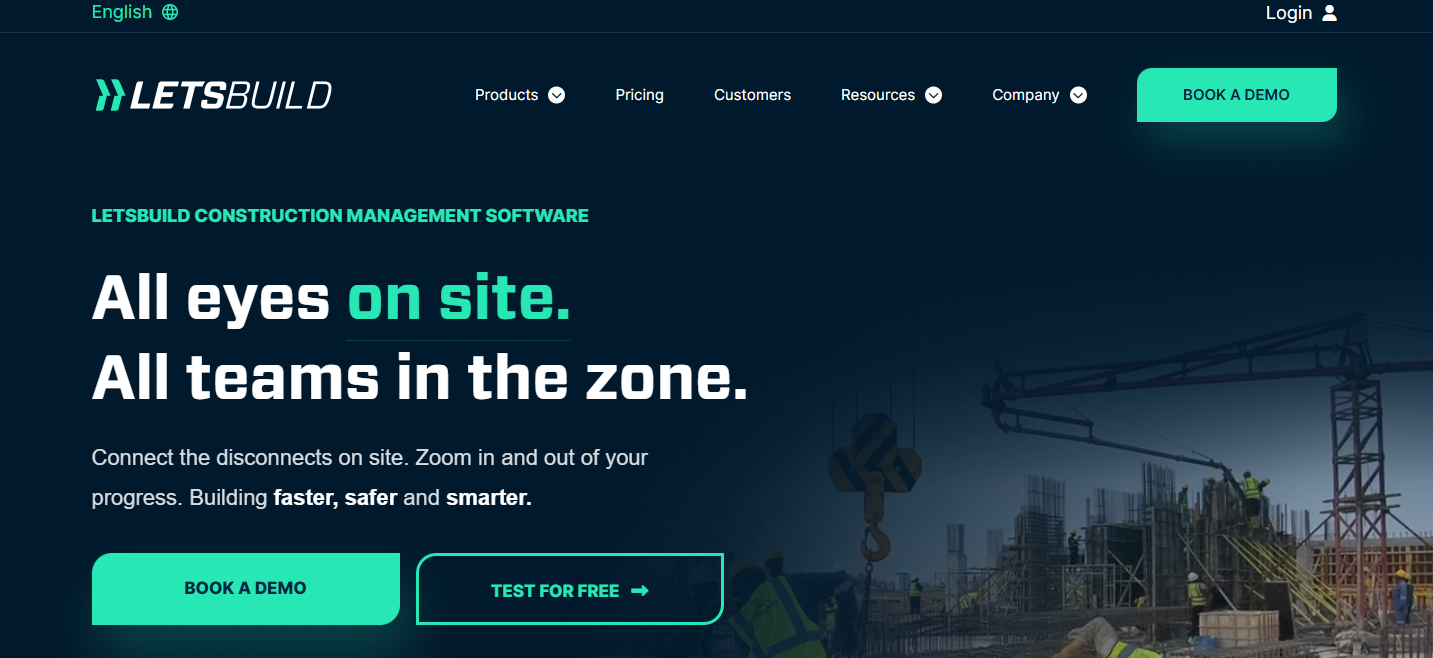
(Source: letsbuild.com)
Focused on execution phase management, LetsBuild improves site visibility and real-time communication.
Key Features:
- Progress tracking and daily logs
- Health and safety workflows
- Checklists and quality control
Pros:
- Great for on-site transparency
- Simplifies compliance tracking
Cons:
- Limited financial tools
- Not ideal for the planning phase
Pricing: Visit their pricing page to get a custom quote.
5. Knowify
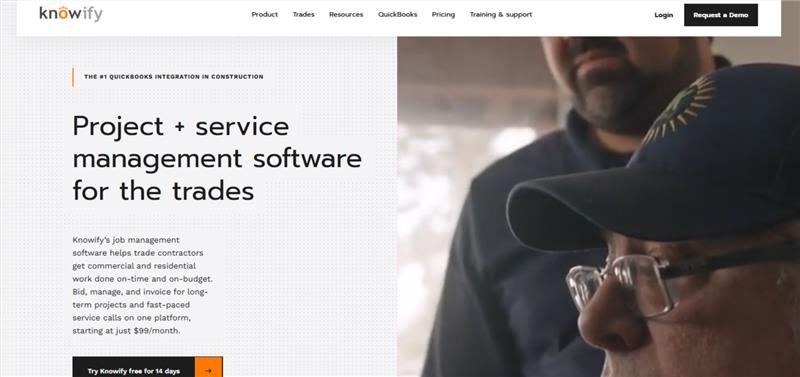
( Source: knowify.com )
Knowify is a lightweight yet powerful tool for managing estimates, bids, time tracking, and invoicing. Perfect for small to mid-sized contractors.
Key Features:
- Integrated with QuickBooks
- Contract, invoice, and payment tracking
- Job costing and project timelines
Pros:
- Budget-friendly
- Easy to implement for small teams
Cons:
- Limited scalability for large firms
- Basic reporting features
Pricing: Starts at $99/month
6. RedTeam

( Source: redteam.com)
RedTeam supports full project lifecycle management, including preconstruction, budgeting, scheduling, and document control.
Key Features:
- Daily logs and job site photos
- Digital contracts and RFIs
- Budget dashboards
Pros:
- Enterprise features at a mid-market price
- Excellent field-to-office collaboration tools
Cons:
- Lacks flexibility in user customization
- Limited mobile offline functionality
Pricing: Visit their pricing page to get a custom quote.
7. Projectmates
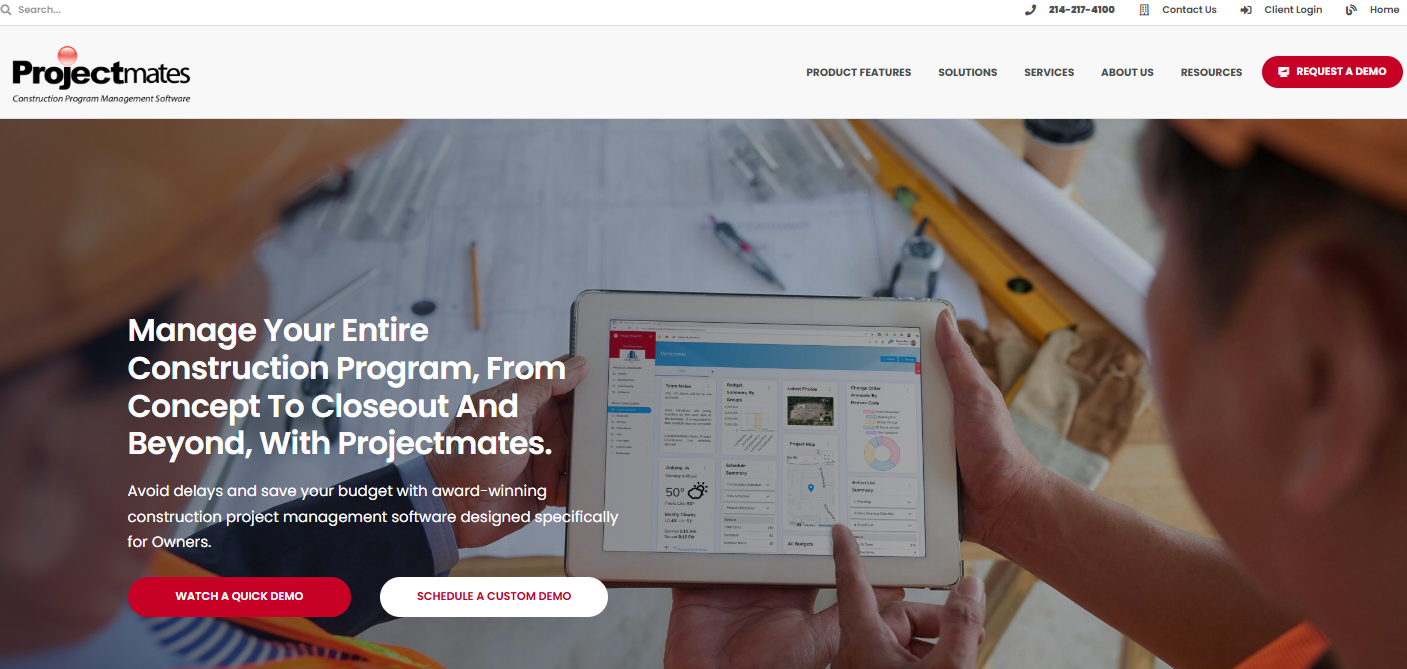
(Source: projectmates.com)
A secure, owner-focused project management software used by capital program managers, educational institutions, and public works departments.
Key Features:
- Capital planning and facility management
- Procurement and bid tracking
- Mobile field updates
Pros:
- Scalable for multi-project environments
- Government-grade security
Cons:
- More suited for owners, not contractors
- Pricing based on project size
Pricing: Based on project scale
8. eSUB
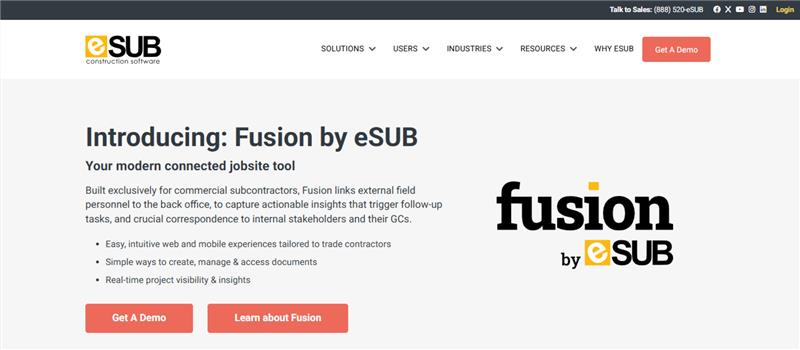
( Source: esub.com)
eSUB was built specifically for subcontractors, focusing on labor tracking, project logs, and daily documentation.
Key Features:
- RFI, submittal, and daily report management
- Timecards and issue logs
- Photo and document storage
Pros:
- Built for field users
- Improves job documentation accuracy
Cons:
- Not optimized for general contractors
- Limited integrations
Pricing: Starts at $49/user/month
9. BuildTools
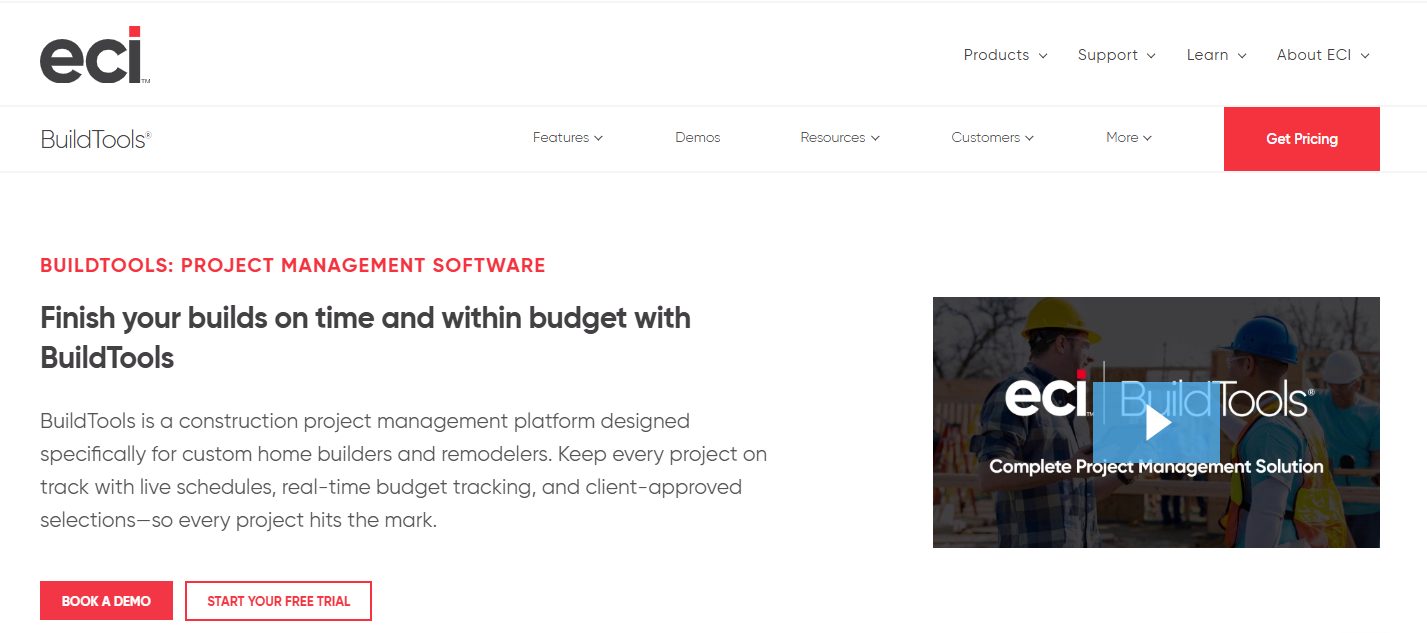
( Source: buildtools.com)
BuildTools streamlines residential construction workflows, allowing contractors to communicate with clients and subs, manage budgets, and track progress.
Key Features:
- Selection schedules
- Budget change tracking
- Messaging tools for client updates
Pros:
- Designed for high-end custom builds
- Reduces communication gaps with homeowners
Cons:
- Not ideal for commercial projects
- Custom pricing can be opaque
Pricing: Visit their pricing page to get a custom quote.
10. Buildxact
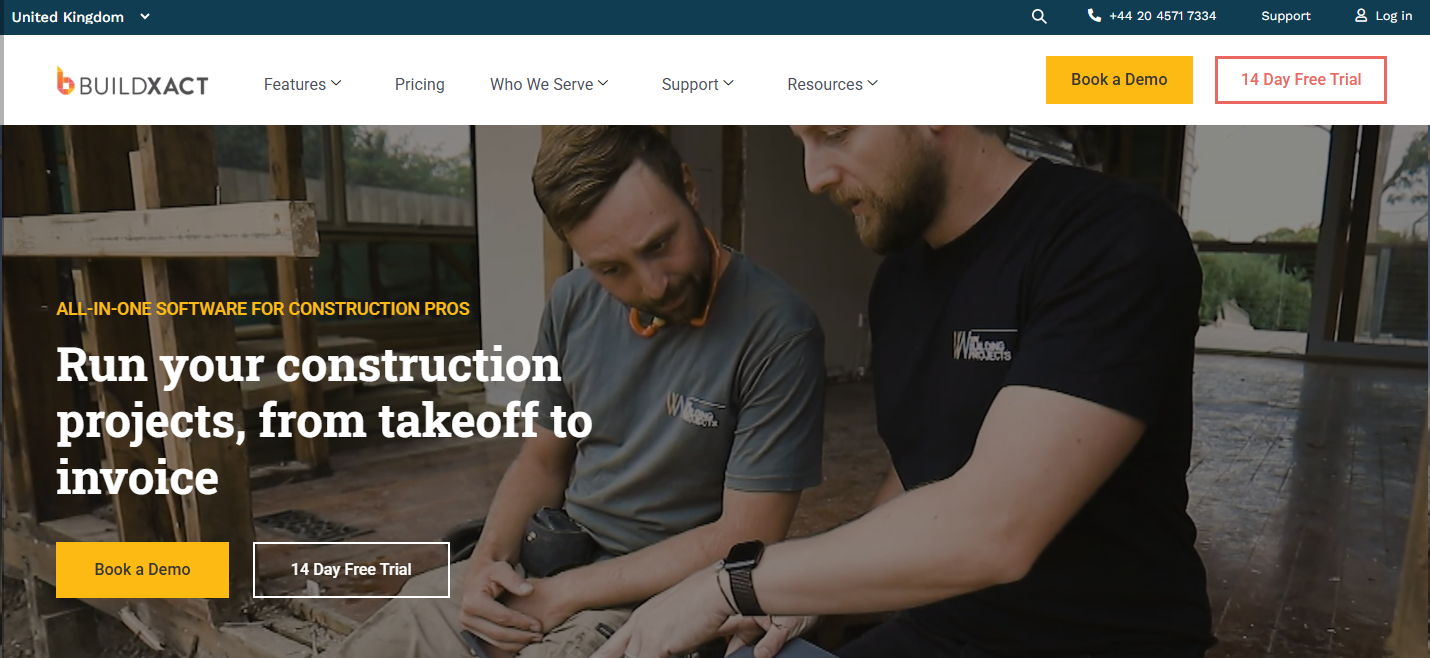
( Source: buildxact.com)
Buildxact is an estimating and project management tool for builders and remodelers. Its strength lies in fast quoting and cost control.
Key Features:
- Quote generator
- Job costing
- Client portal
Pros:
- Simple for new users
- Includes CRM and communication tool
Cons:
- Limited multi-user permissions
- Higher base price for small businesses
Pricing: Starts at $199/month
11. Archdesk
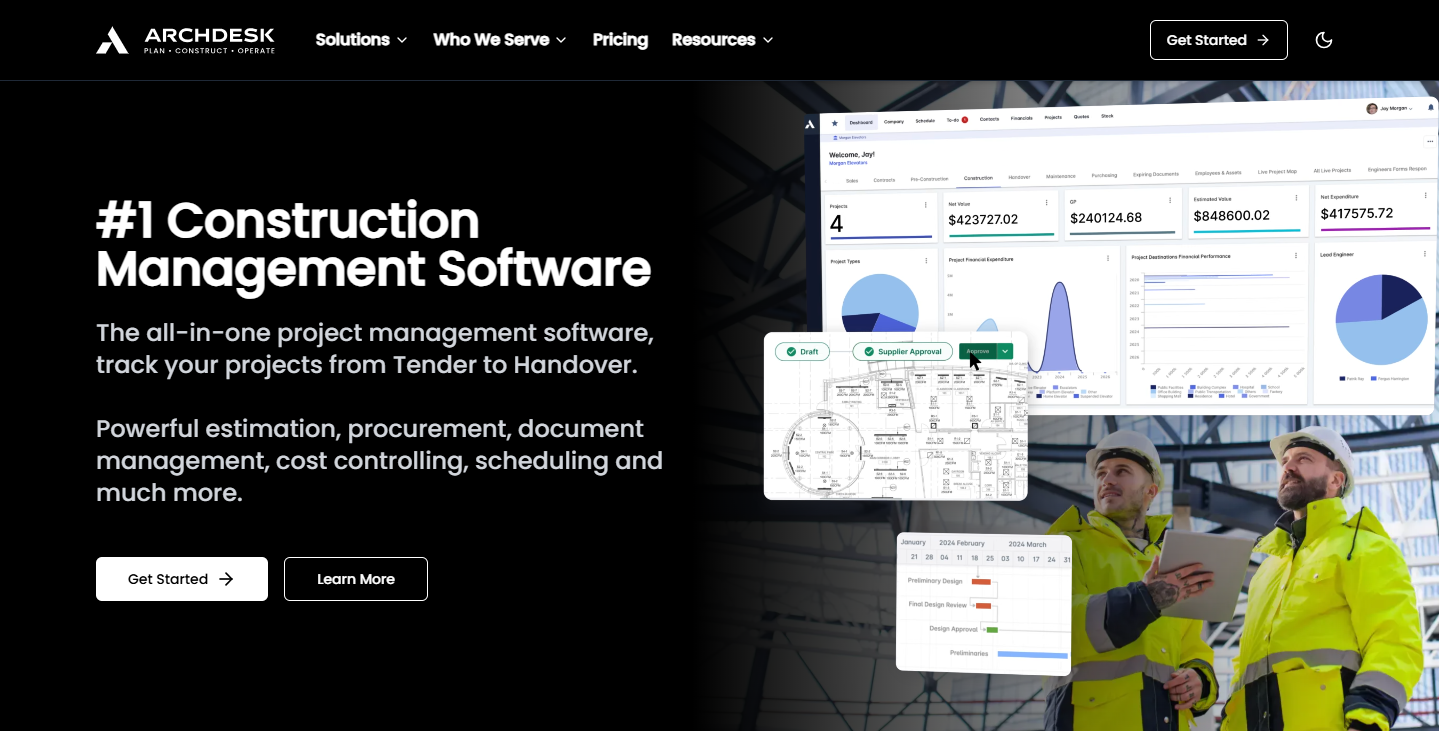
( Source: archdesk.com)
An ERP-style solution for larger contractors and manufacturers, Archdesk offers configurable workflows and strong back-office integration.
Key Features:
- Finance and procurement management
- Scheduling and timesheets
- Document approvals
Pros:
- Modular setup based on company needs
- Ideal for fit-out and industrial use cases
Cons:
- Setup can be complex
- Longer implementation time
Pricing: Visit their pricing page to get a custom quote.
12. Contractor Foreman
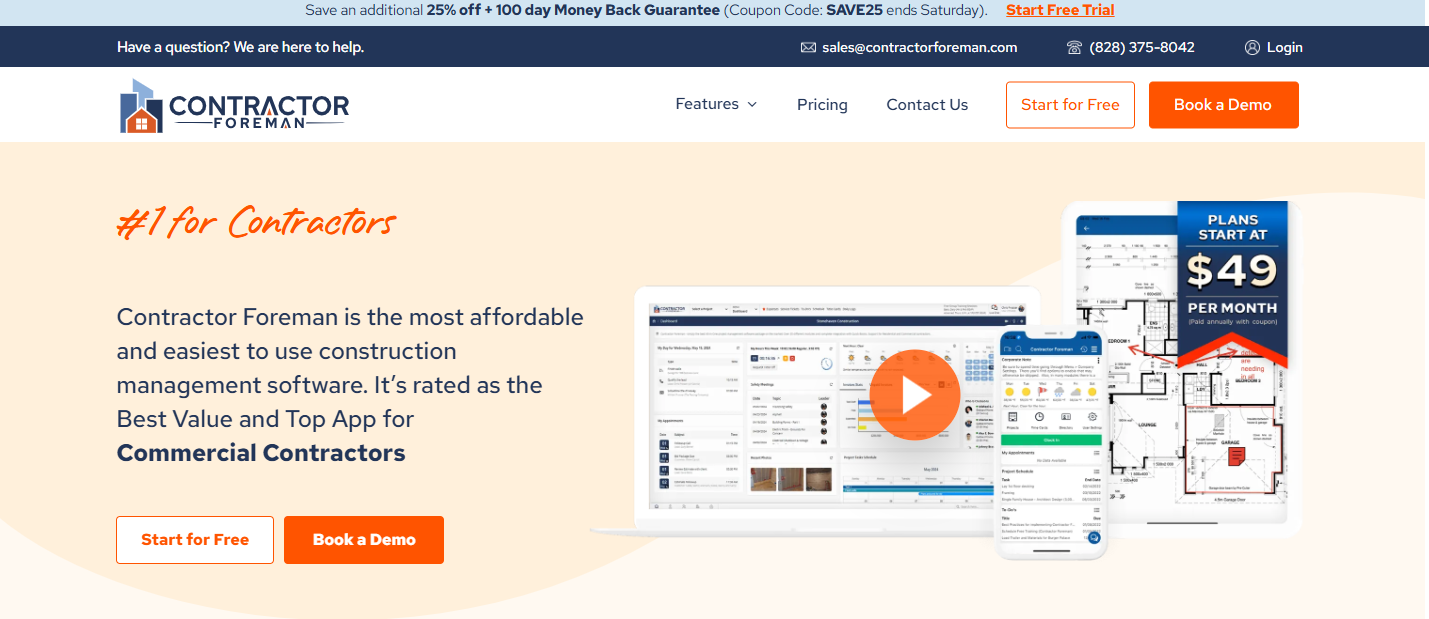
( Source: contractorforeman.com)
Contractor Foreman is one of the most affordable all-in-one solutions, offering 35+ modules for project management and safety.
Key Features:
- Safety audits and forms
- Job costing and budget controls
- Gantt chart scheduling
Pros:
- Excellent mobile support
- Works well for small and mid-sized contractors
Cons:
- UI can feel cluttered
- Limited advanced customization
Pricing: Starts at $49/month
13. BuildBook
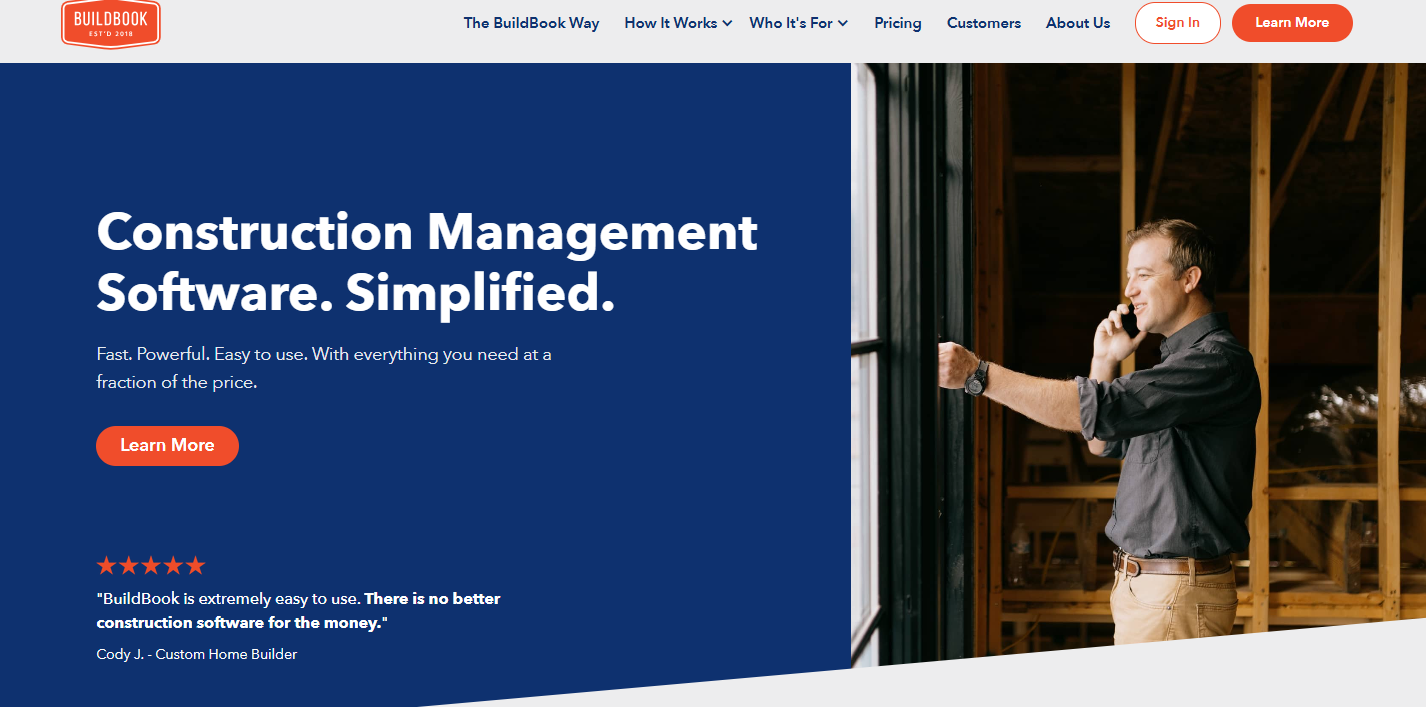
( Source: buildbook.co)
BuildBook focuses on improving communication between contractors and clients during custom home builds.
Key Features:
- Timeline and task tracking
- Selections and budgeting
- Messaging interface
Pros:
- Great for boutique builders
- Beautiful client-facing interface
Cons:
- Limited integrations
- Basic scheduling tools
Pricing: Starts at $79/month
14. Autodesk Construction Cloud
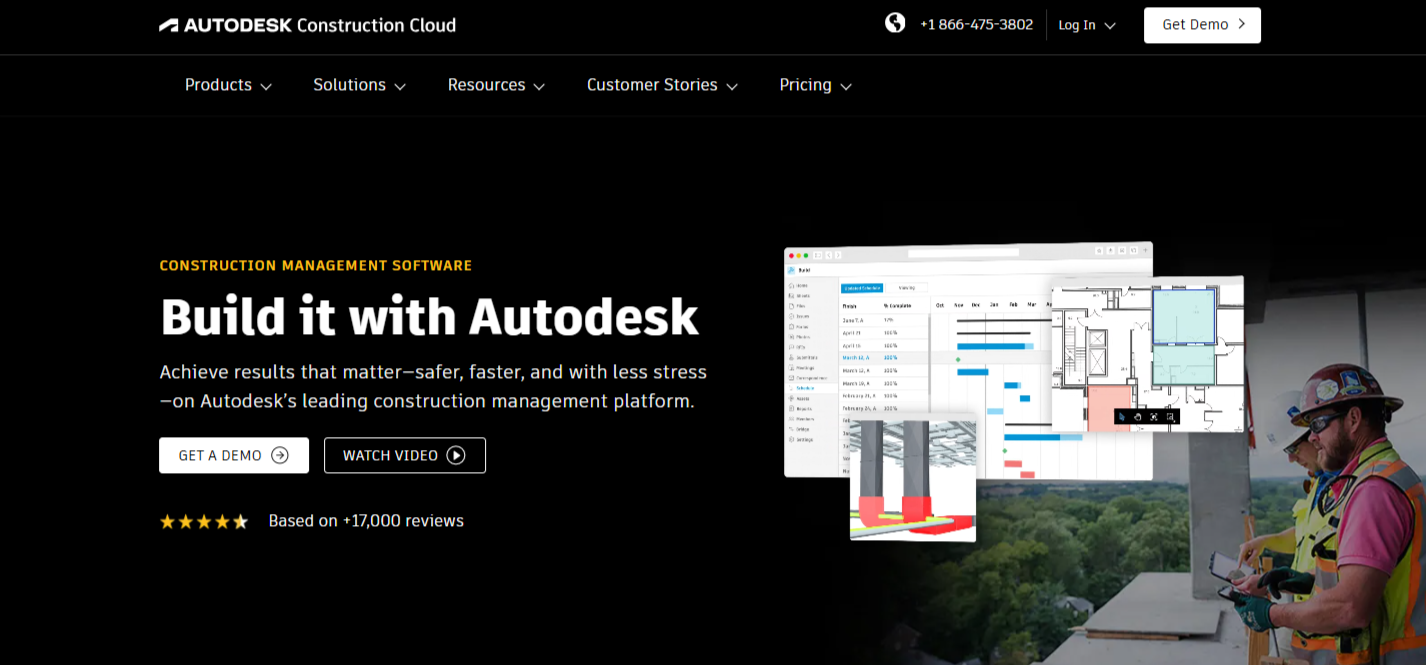
(Source: construction.autodesk.com)
An integrated suite of tools (including BIM 360 and Build) for end-to-end construction lifecycle management.
Key Features:
- Document and design management
- Field execution tools
- Analytics and cost controls
Pros:
- Deep feature set and BIM integration
- Trusted by large firms
Cons:
- Complex system
- Higher pricing tier
Pricing: Visit their pricing page to get a custom quote.
15. Raken
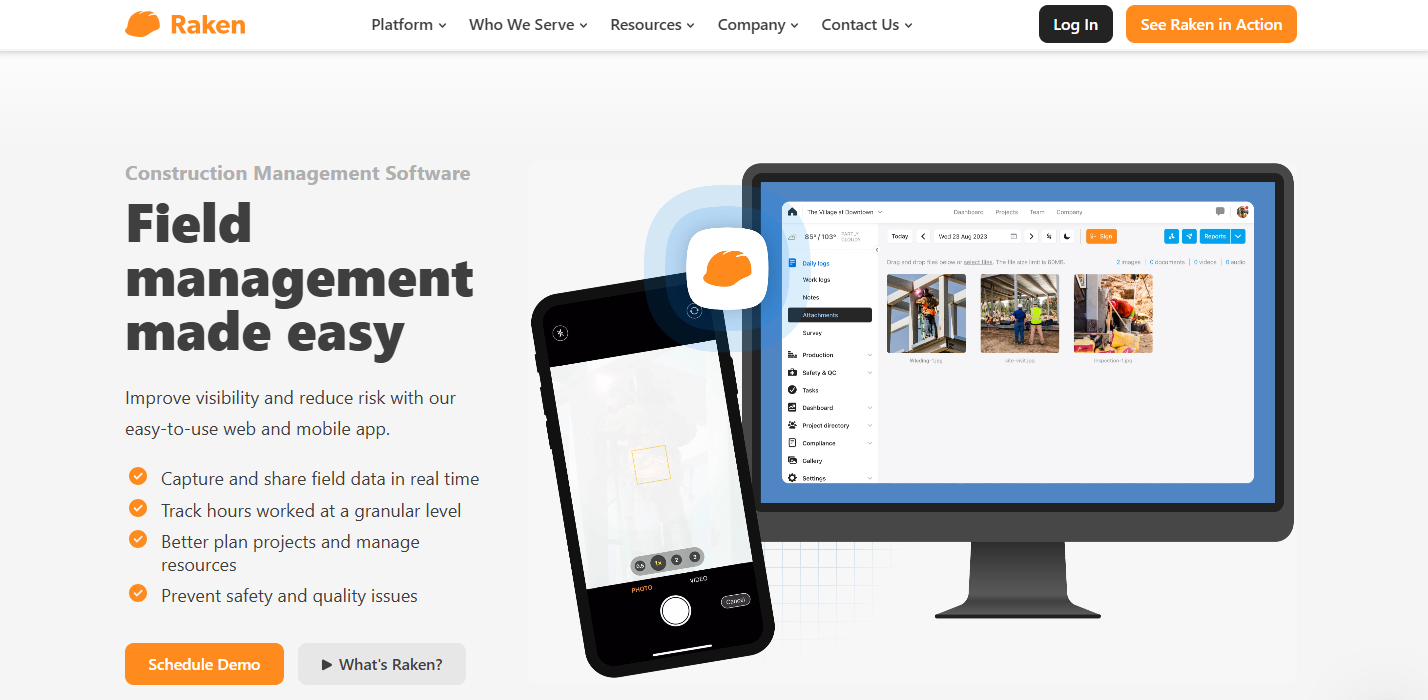
(Source: rakenapp.com)
Raken is a mobile-first construction reporting app that simplifies daily logs, time tracking, and safety documentation—ideal for field teams needing fast, on-the-go reporting.
Key Features:
- Daily reports and time tracking
- Safety management tools
- Photo and file documentation
Pros:
- Built for field reporting
- Very user-friendly mobile app
Cons:
- Not a full project management suite
- Limited customization
Pricing: Starts at $18/user/month
Conclusion
Whether you’re looking for high-end ERP systems, subcontractor-focused platforms, or tools built for small remodelers, this list highlights some of the most practical and powerful alternatives to the more commonly known solutions.
Each of these platforms offers unique features and strengths. The key is to choose a tool that aligns with your team’s size, project complexity, and budget.
Interested in an all-in-one, field-ready platform?
Schedule a demo with OConstruction and experience how modern construction management should work—intuitive, secure, and built for real-world results.

